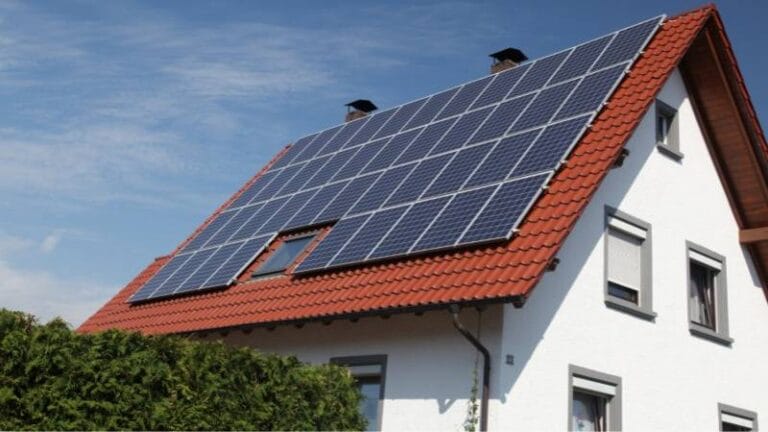Picture this: you’re out on a camping trip, miles away from civilization, and your phone battery is on its last legs. Or maybe you’re in an RV, parked at a scenic overlook, but your appliances need power. That’s where 100-watt solar panels step in—a compact, efficient, and eco-friendly way to generate power anywhere the sun touches.
With the rising cost of electricity and the growing need for sustainable energy, more people are turning to solar solutions.
But not all 100-watt solar panels are created equal. Some brands prioritize efficiency, while others focus on portability, durability, or sustainability.
In this guide, we’ll explore the sustainability efforts behind the top 100-watt solar panel brands.
From material sourcing and production ethics to their role in reducing carbon footprints, we’ll break down which brands are truly pushing the solar industry forward—and which ones still have room to grow. If you’re looking for a 100-watt solar panel that aligns with both your energy needs and your sustainability values, you’re in the right place.
10 Best 100-Watt Solar Panel Brands
1. Renogy
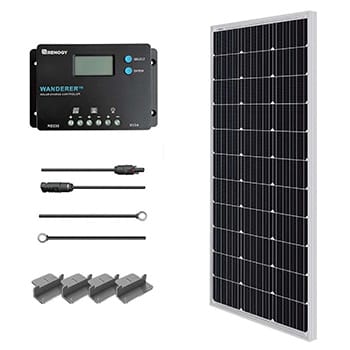
Renogy has carved a name for itself in the solar energy space by making renewable power accessible to homeowners, RV enthusiasts, and off-grid adventurers.
Their 100-watt solar panels reflect a commitment to energy independence and sustainability, helping users cut their reliance on fossil fuels. While the company champions clean energy, transparency around its supply chain and manufacturing ethics is limited.
That said, their consistent innovation in solar technology—like monocrystalline panels with high efficiency—aligns with a future driven by renewable energy.
Renogy encourages a shift toward self-sustaining power solutions, but a deeper look into their material sourcing and lifecycle impact would add to their credibility.
2. Jackery
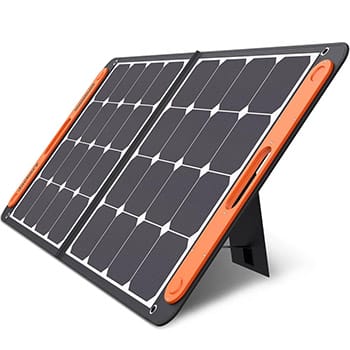
Jackery’s SolarSaga solar panel is not just a product; it’s a statement about sustainable energy on the go.
Designed for outdoor adventurers and emergency preparedness, these lightweight, foldable panels promote a green lifestyle without compromising convenience. The brand actively markets itself as an eco-friendly alternative to gas-powered generators, but what’s missing from the conversation is its stance on sustainable manufacturing.
While their products enable consumers to harness clean energy, questions remain about material sourcing, labor ethics, and end-of-life recyclability.
Still, Jackery has built a reputation for bridging the gap between accessibility and renewability, encouraging more people to choose solar over fossil fuels.
3. Bluetti
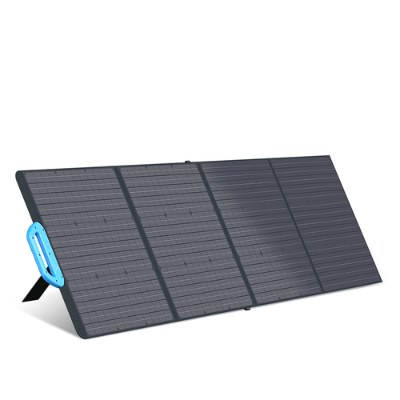
Bluetti is making waves in the portable power industry, delivering solar panels designed to complement their power stations for sustainable energy independence.
Their technology prioritizes efficiency, allowing users to generate and store solar power seamlessly. While they emphasize innovation, details about their environmental impact remain vague.
How sustainable is their supply chain?
Are their panels designed with recyclability in mind? These questions linger. Despite this, Bluetti’s contribution to reducing carbon footprints in off-grid energy solutions is significant.
By offering an alternative to gas generators, the brand promotes a cleaner, quieter, and greener approach to power generation.
4. EcoFlow
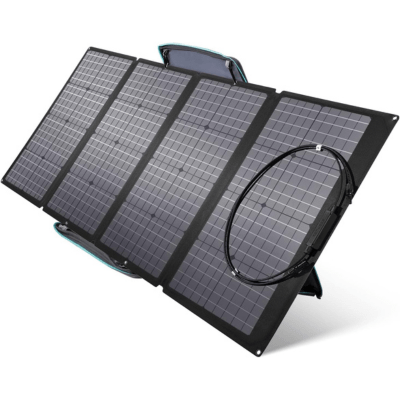
EcoFlow is pushing boundaries in the renewable energy space, bringing high-efficiency solar panels to both urban dwellers and off-grid explorers.
Their 100-watt panels, lightweight yet durable, are designed for convenience without sacrificing performance. The brand is vocal about its commitment to sustainability, particularly in reducing carbon footprints through portable clean energy solutions. However, transparency in material sourcing and responsible manufacturing remains unclear.
Do they use ethically mined silicon? Are their panels designed for recyclability?
These aspects could enhance their standing as a truly green company. Still, EcoFlow plays a critical role in making solar power more accessible, reducing the reliance on gas generators in favor of a more sustainable future.
5. Rich Solar
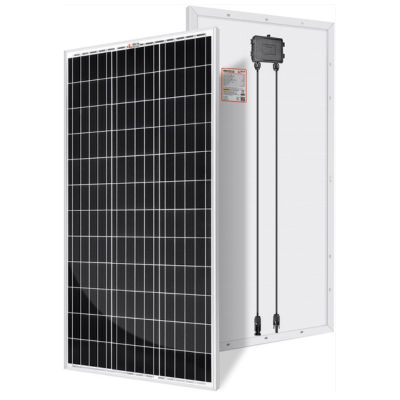
Rich Solar has built a loyal following among those seeking off-grid independence, particularly for RVs and tiny homes.
Their 100-watt solar panels offer a straightforward approach to renewable energy, helping users transition away from fossil fuels. While the brand focuses on durability and efficiency, its sustainability efforts beyond energy generation are less clear.
Do they ensure fair labor practices? Are they minimizing production waste?
These factors matter in a truly sustainable brand. Still, Rich Solar’s ability to provide affordable, reliable solar power is commendable, offering a practical gateway for consumers looking to embrace clean energy.
6. Rockpals
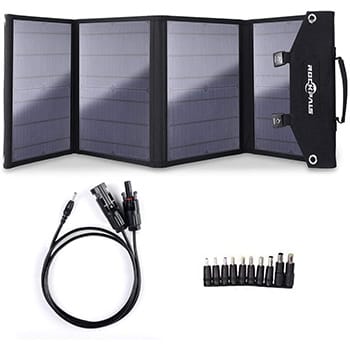
Rockpals markets itself as a go-to solution for adventurers who want power without pollution. Their 100-watt solar panels fit neatly into this narrative, offering an alternative to gas-powered generators.
The company highlights energy efficiency and portability but offers little in the way of transparency about its own sustainability practices.
Are their panels made with responsibly sourced materials? What happens at the end of their lifecycle?
While Rockpals contributes to reducing reliance on fossil fuels, a clearer commitment to environmental responsibility would strengthen its position as a truly green brand. Still, for those looking to power up on the move, Rockpals provides an easy entry point into solar energy.
7. Goal Zero
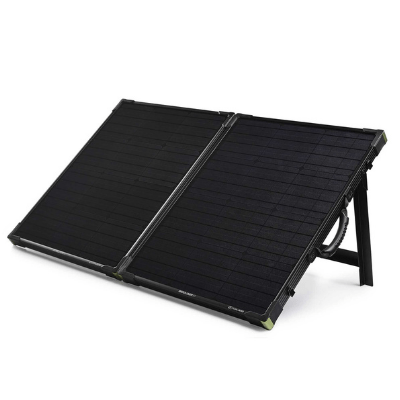
Goal Zero takes sustainability seriously, not just through its products but in its mission.
Their Boulder 100 solar panel is designed for adventure, offering clean energy wherever it’s needed. Unlike many competitors, Goal Zero actively engages in humanitarian efforts, supplying solar power to disaster relief projects and underprivileged communities.
While their commitment to renewable energy is undeniable, deeper insights into their manufacturing practices would be valuable. Are their materials ethically sourced? Do they prioritize recyclability? Despite these unknowns, Goal Zero has positioned itself as more than just a brand—it’s a movement toward accessible, sustainable energy for all.
8. Newpowa
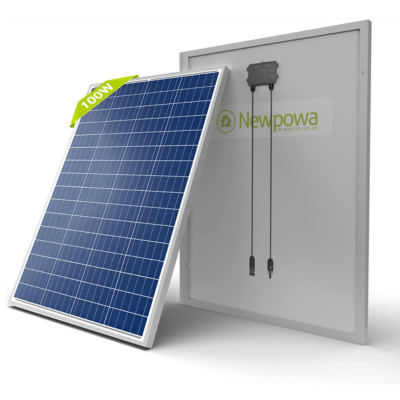
Newpowa offers affordable solar panels for homes, RVs, and businesses, making renewable energy more accessible to the everyday consumer.
Their 100-watt panels are built with efficiency in mind, but sustainability efforts beyond energy generation remain a mystery. The company’s focus is on affordability and performance, but does this come at an environmental cost? How do they source materials, and what happens to their panels when they reach the end of their lifespan?
More transparency on these aspects would solidify Newpowa’s commitment to sustainability. Regardless, their role in making solar energy an affordable option for consumers is a step in the right direction.
9. ACOPOWER
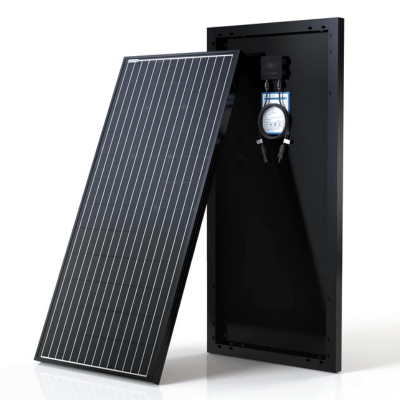
ACOPOWER delivers off-grid solar solutions for outdoor use, RVs, and marine applications. Their 100-watt solar panels are designed to bring renewable energy to remote locations, helping users cut ties with fossil fuels.
However, their sustainability story is underdeveloped. Are their manufacturing processes eco-friendly? Do they use ethically sourced raw materials?
These questions matter for a brand that markets itself as a green solution. While their products undeniably contribute to reducing carbon emissions, a clearer sustainability strategy would strengthen their reputation as an environmentally responsible company.
Until then, ACOPOWER remains a practical but somewhat an unknown player in the solar space.
10. ECO-WORTHY
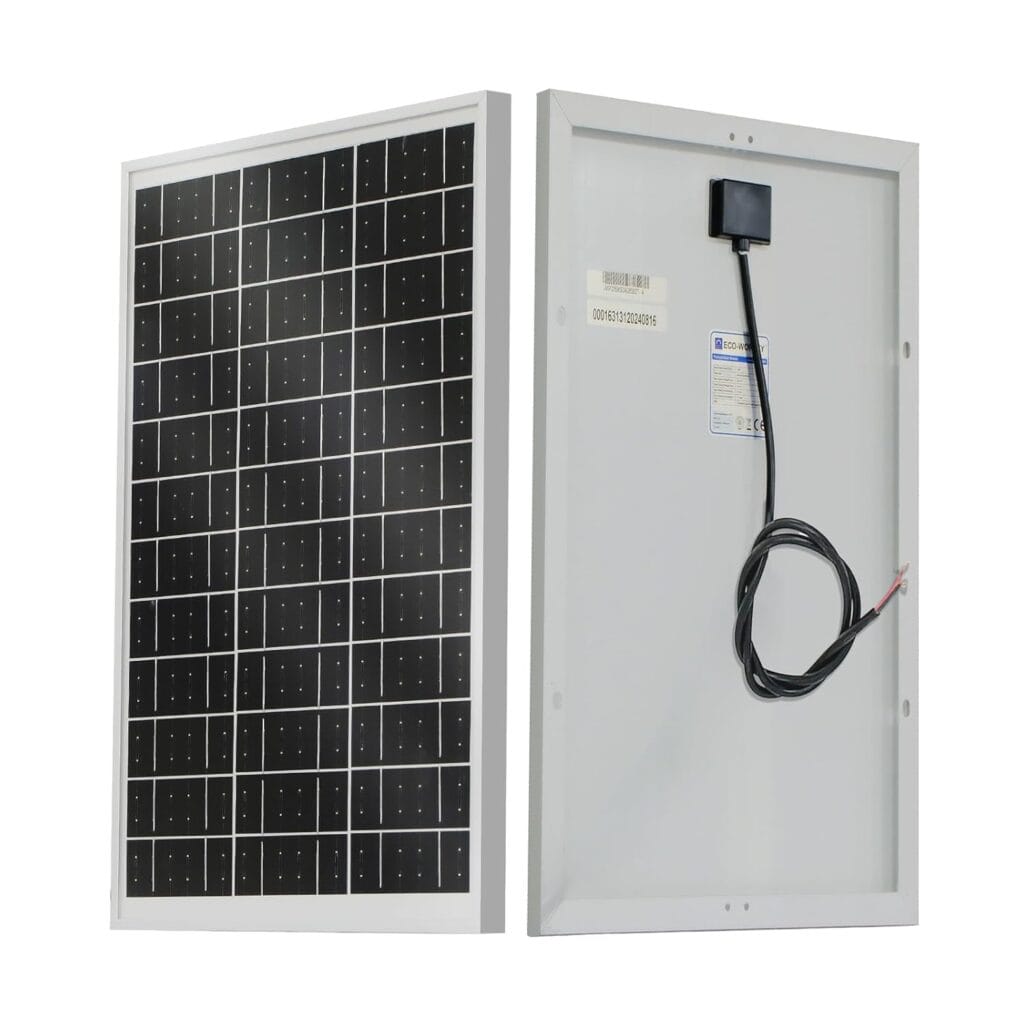
ECO-WORTHY is all about affordability, offering budget-friendly solar panels without sacrificing performance.
Their 100-watt panels provide an entry point for those wanting to shift to solar, but what about sustainability? The company’s name suggests an eco-conscious approach, yet details about their production ethics are scarce. Are their panels made with recycled materials? Do they engage in responsible labor practices?
While ECO-WORTHY empowers consumers to reduce their carbon footprints, the brand itself could benefit from greater transparency. Still, their mission to make solar energy accessible to all is a positive force in the renewable energy industry.
Frequently Asked Questions (FAQ)
No, a 100 watt solar panel alone cannot run a standard US refrigerator.
You can hook up a 100 watt solar panel by connecting it to to a charge controller, a power inverter, and a deep cycle battery of some kind. Take note though that every system has different setups so you should check the user manual for your specific product(s).
A 100W solar panel produces around 18V or 5.55 amps of power in ideal conditions. However, in reality the output will be closer to around 3.5 to 4 amps in a day.
A 100 watt solar panel will charge a 12V battery in around 14 hours under ideal conditions. However, most people are not dealing with ideal sunlight conditions so it could be much longer.
Harnessing the Sun: Are 100-Watt Solar Panels the Right Choice for You?
Choosing the right 100-watt solar panel isn’t just about power output or efficiency—it’s about investing in a cleaner, greener future. Every panel you buy is a vote for renewable energy, but not all brands take sustainability as seriously as they should. Some lead the charge with responsible manufacturing, ethical sourcing, and long-lasting durability, while others focus more on affordability with less transparency on their environmental impact.
As solar technology continues to evolve, the brands that prioritize sustainability will shape the future of clean energy. Whether you’re looking for a 100-watt solar panel for off-grid adventures, RV living, or emergency backup power, making an informed choice means considering more than just specs. It’s about choosing a company that aligns with your values—one that not only delivers clean energy but does so with a commitment to protecting the planet.
So before you make your decision, ask yourself: is your solar panel truly sustainable, or just another piece of tech? The sun provides unlimited energy—it’s up to us to harness it responsibly.
